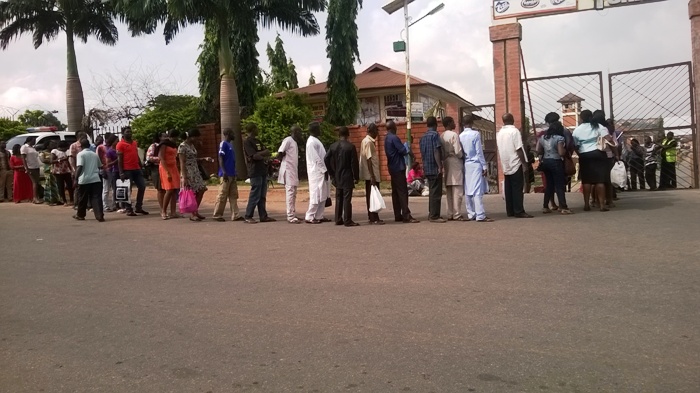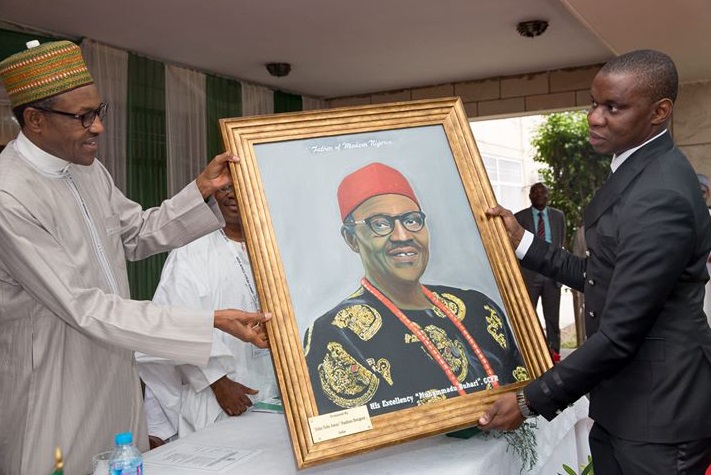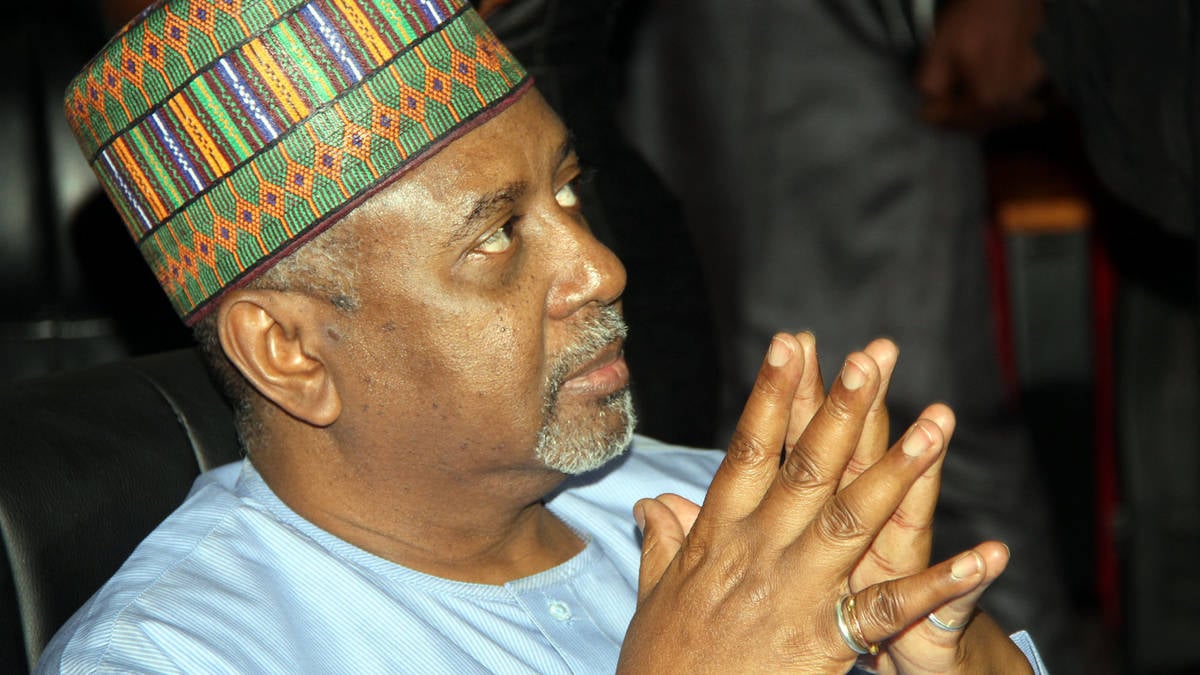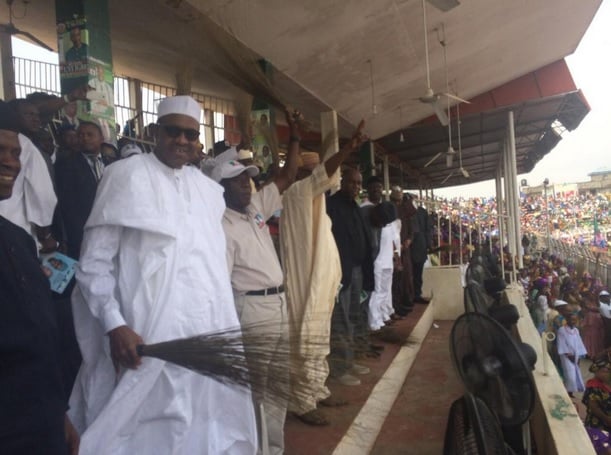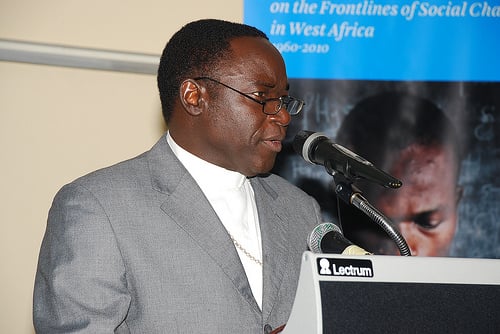The 2016 budget proposal presented to the Senate by the President was greeted with a lot of optimism from some quarters. Even prominent ‘Men of God (Pastors)’ prophesied that 2016 will be better than 2015. Some were even more specific like the prophets of the Old Testament- they prophesied that things will turn around from the second quarter. Apparently, this prediction was predicated on the fact that the budget will take effect from the second quarter. Interesting, isn’t it! I hope those prophesies were revelations from God and not from temporal calculations? However, it is one thing to be overly optimistic and another to face reality.
At this juncture, I must say that I believe the President and his team are trying their best considering the very precarious situation we have found ourselves as a Nation. On paper, the proposed 2016 budget, is one of the best documents to come out of Nigeria in the last 43 years. 30% of the proposed budget is devoted to capital development. Perfect! We badly need infrastructure and we cannot continue devoting over 80% of our budget to recurrent expenditure. Also, oil revenue now contribute less than 30% of government revenue. Wow, by implication even if oil falls to $30 as against the bench mark of $38, we might still manage to implement our budget, to reasonable extent. In this article, I will argue that these postulations might not necessary work and that we still need those petrodollars, even though, in another form.
Renowned economists also share my pessimism. Prof. Akpan Ekpo argues that the debt to GDP ratio is within acceptable limit, so we are somewhat in order borrowing about N2 trillion. This makes sense. The erudite scholar, however, cautioned that GDP does to pay back debts. Revenues pay debt. In 2016, Nigeria proposes to use about N1.47 trillion in servicing our debt, a large amount, considering the value of the budget (N6.6 trillion). Of course, we don’t have a choice, we have to pay our debts. Note, with the current borrowing, the amount of money budgeted for debt servicing would likely go up in 2017. Prof. Ekpo, concluded by praying that Nigeria does not get into a currency crisis. A currency crisis is when a country can no longer honor its financial obligations, especially when those commitments are in dollars, because it does not have enough of it. Nigeria does not print dollars. Incomes from PAYE, VAT and other government revenues are mostly in Naira. As long as we export very little, dollars would continue to be scare and a currency crisis might occur. With a currency crisis, do you think any economic document from government would make sense?
I sincerely love Nigeria and its President, Mohammadu Buhari. So, let me offer my sincere Nigerian Prayer: ‘’A currency crisis will not be our portion in Jesus’ name. Our Naira will not gyrate like those irresponsible Kegites in the university. I know God loves Nigeria’’. Though as a catholic, I do not believe that God loves Nigeria more than Zimbabwe that he had allowed their currency to gyrate and become mere piece of papers at some point.
Advertisement
Humor apart, I believe the President will succeed in this divine mandate. So, what do we do as a Nation? Last Christmas, after discussing the state of our Nation, my little cousin exclaimed: ‘in fact, why don’t we stop everything for this year and just concentrate on building 3 brand new refineries. I heard Dangote is building a new refinery, why can’t Buhari give him some more money so that that refinery starts working as soon as possible. These refineries will even provide more than the 500,000 jobs government is talking about. They might provide cheap fuel and catalyze other industrial developments. Then, next year we might take our Roads or Power and deal with it’’. I was surprised at her simplistic and funny solution to a national problem. However, does this not have some little semblance to what HRM Lamido Sanusi said during his senate screening, when he was nominated as Central Bank Governor? He argued that the then 7- point agenda should be pruned to not more than two points. I think he believed that carrying 7 big projects at the same time might result in not achieving any.
Wow! Indeed, wisdom comes from unlikely places. My little cousin made some sense. I think we should tow her path. Investing in agriculture, housing power, health and education are good. But, the argument is: what is the level of investment we need to put in them to transform them. Take for example, agriculture, to invest in agriculture to a level where it start generating significant FOREX would require massive investment. The point is this: we badly need FOREX, we need to diversify our economy with agriculture but the resources are scarce. You need money to make money. So, you need heavy capital investment in agriculture in order to generate naira and dollars. Did I hear you say government does not have any business in business? Did you say government should leave agriculture to the Olams and Stallion of this world? In times of slow growth, the private sector might not necessarily create the needed jobs needed to reflate the economy. This is because the as soon profits dips, the private sector might react by reducing jobs. Cutting jobs contributes to recession. Thus, government should take the lead in reflating the economy.
I strongly believe it would be easier, as thing are, to industrialize with crude oil rather than without it. Concentrating in a given year on optimizing local refining capacities can make Nigeria sufficient in gasoline, jet fuel, diesel and other fuels, asphalt, heavy fuel, lubricants and plastics. Think of what cheap asphalt can do to our road construction or what cheap plastics can do to our manufacturing industries. Aggressive exportation of plastics will surely give us a lot of FOREX. If you doubt me, ask INDORAMA (owners of Eleme Petrochemicals) if they are not smiling, even at the low oil prices. Another sector might be taken the subsequent year.
Advertisement
The suggestions made in this article, might be written-off by some folks by referring to it as an academic discussion (exercise). This was how HRM Sansui’s suggestions were not taken seriously. I totally understand this. Think about it. If you decide to concentrate on health this year and make sure our hospitals are world class, do expect other ministers to be ideal. Or, do you expect our roads to get worse because of neglect. No, of course. Skeletal work can still be done on other ministries, while the thrust is on the ‘priority’ ministry for that year.
What an honor it will be for President Buhari, if in 10 years, Nigerian look back and say Nigeria stopped importing fuel in 2018. I think any government should be known for fixing one thing instead of trying to fix many things.
Dr Nwankwo lives in Benin City
Advertisement
Views expressed by contributors are strictly personal and not of TheCable.
Add a comment


